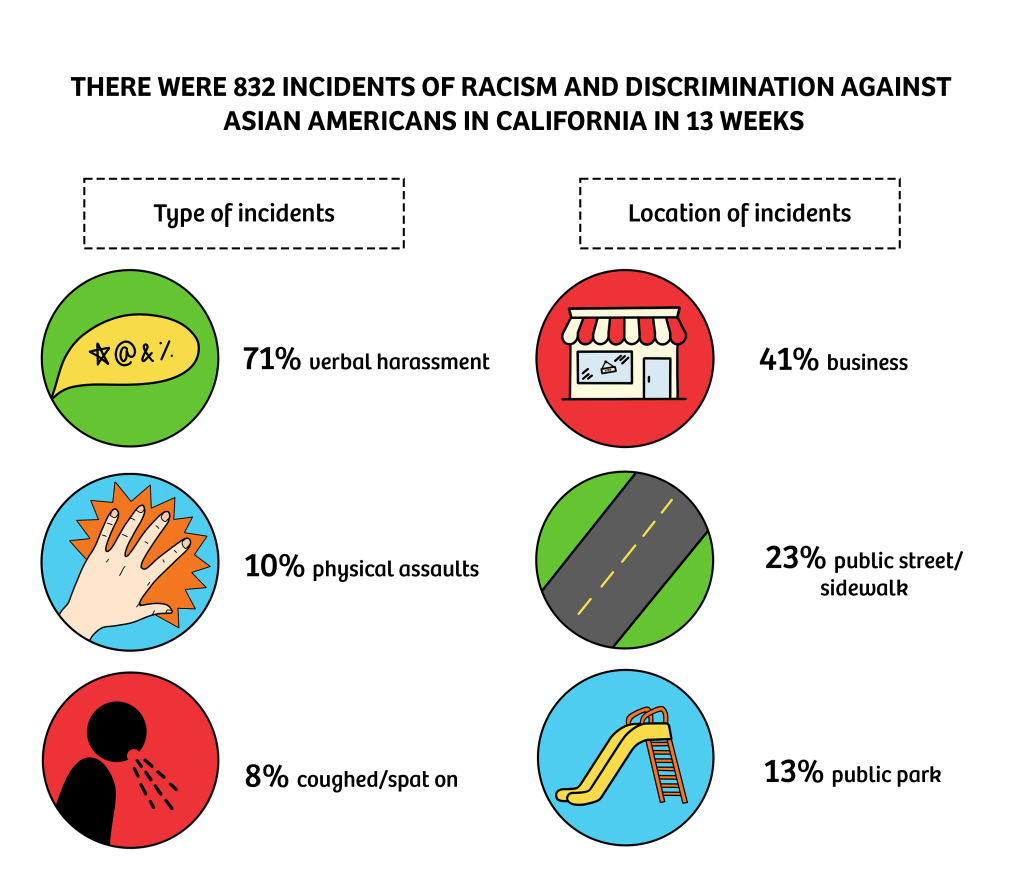In early February, an 84-year-old Thai man was viciously shoved to the ground in San Francisco on his morning walk. He died days later. Less than a week after the unprovoked assault, an elderly Asian man was knocked over and hospitalized in San Francisco’s Chinatown. Though the attacks occurred seemingly without a motive, they contributed to an overwhelming rise in violence and hate against Asian Americans. The fear and anger caused by the pandemic is understandable, but it has manifested itself into harmful division and hostility.
The number of senseless attacks against Asian Americans has skyrocketed since the beginning of the pandemic. Throughout the Bay Area, Asian cultural sites and businesses have been vandalized, and Asian Americans have been subject to violent and racially-motivated attacks. Stop AAPI Hate, a San Francisco-based organization advocating against xenophobia reported over seven hundred attacks against Asian Americans in the Bay Area alone over the course of the year.
Though over ninety percent of the incidents reported to Stop AAPI Hate were not physical, the continued hate has a demoralizing effect on the community. An estimated two million Asian Americans and Pacific Islanders (AAPI) have been working tirelessly on the front lines of the pandemic as essential workers and healthcare providers. Many have lost jobs or homes. This alarming rise in bigotry has exacerbated the strain on Asian businesses, many of which have seen a huge drop in customers due to the pandemic as well as anti-Asian sentiments. Even seemingly harmless racially-charged jokes and microaggressions misplace blame and hurt families.

The recent surge in hate hasn’t come out of nowhere. It took root from comments made by political leaders, calling COVID-19 the “China virus” or “Kung Flu” and insinuating that people of Asian descent are more likely to carry the virus. By frequently using derogatory language, politicians set the precedent for what’s appropriate in normal conversation, even if it shouldn’t be. COVID-19 may have emerged in China, but it’s just as likely to infect Asians as anyone else. This toxic scapegoating has increased stigma against the Asian community and fueled unfounded fears.
Though Asian Americans have suffered prejudice and racism, the support within and outside of the community is especially inspiring. Recently, other politicians have finally begun taking a stand, bringing a welcome change. Soon after taking office, President Joe Biden signed an executive order condemning and combating xenophobia against Asian Americans. Over seven hundred volunteers from across the Bay Area have joined the local group Compassion in Oakland, an organization formed in response to the anti-Asian xenophobia and which helps escort elderly citizens to keep them safe. The recent surge in hate crimes has galvanized celebrities and political icons to speak out as well, using social media to bring attention to the issue and stir leaders into action. This display of support serves as a reminder that all our voices matter in stopping the spread of xenophobia. Especially in this time of anxiety, it is imperative that we support all members of the community and condemn these acts of hate and violence.





